

101+ Interesting History Project Ideas For Students
Finding a good history project idea can be tricky, but with some help, students of all ages can pick a fascinating, doable, and educational topic. From biographies of influential people to historical events or places, there are many exciting ways to learn about the past.
This blog post will explore potential history project ideas from different periods, locations, and views. Whether you want to understand your family’s history better, focus on a topic that connects to current events, or satisfy your curiosity about the past, you will find inspiration.
With the right history project idea, you can gain valuable research skills while diving into a subject you’re passionate about. From Native American culture to the Civil Rights Movement and more, read on for historical project suggestions that will teach and engage you.
Are you struggling with History Assignment Help ? Do you need assistance in getting the best and A+ Quality human-generated solutions? Hire our tutors to get unique assignment solutions before the assignment deadline.
What Are History Projects?
Table of Contents
History projects are assignments, often given in school, where students research and present information about a particular topic or period from history. They typically require students to investigate using libraries, museums, interviews, online sources, and other methods to find useful facts and materials.
Students then synthesize what they learned into a project that demonstrates their knowledge. Common types of history projects include research papers, exhibits, documentaries, posters, presentations, websites, and more.
The format allows students to understand history through hands-on learning and exploration. Here are some key reasons history projects are essential:
- Develop research and critical thinking skills
- Gain perspective on how past events shape the present
- Make history come alive through creativity and engagement
- Learn to evaluate and analyze historical sources
- Practice presentation and communication abilities
- Promote an appreciation for the study of history
Here are 103 history project ideas for students, categorized to help you find a topic that suits your interests.
Ancient Civilizations
- The Rise & Fall of the Roman Empire
- Life in Ancient Egypt: Pharaohs, Pyramids, and Daily Life
- Contributions of Ancient Greece to Modern Civilization
- Mesopotamia: The Cradle of Civilization
- Indus Valley Civilization: Mystery of the Lost Civilization
- Ancient Chinese Dynasties: Han, Qin, and Tang
Medieval Times
- Knights and Chivalry: Code of Honor in Medieval Europe
- The Black Death: Impact on Europe in the 14th Century
- Feudalism: Structure of Medieval Society
- Crusades: Holy Wars and Their Consequences
- Vikings: Raiders of the North Sea
Renaissance and Enlightenment
- Renaissance Art and its Influences
- The Scientific Revolution: Changing the Paradigm
- Enlightenment Thinkers: Ideas That Shaped Modern Society
- The Age of Exploration: Discoveries and Consequences
- The Printing Press: Revolutionizing Communication
Also Read:- STEM Project Ideas For Middle School
Colonial America
- 17. Jamestown vs. Plymouth: Contrasting Early American Colonies
- Salem Witch Trials: Hysteria in Colonial Massachusetts
- Founding Fathers: Architects of the United States
- The Triangle Trade: Economic Forces in Colonial America
- Indigenous Peoples and European Contact
American Revolution
- Causes and Effects of the American Revolution
- Revolutionary War Battles: Turning Points and Strategies
- Declaration of Independence: Crafting a Nation’s Identity
- The Role of Women in the Revolutionary Era
- African Americans in the Revolutionary War
19th Century
- Industrial Revolution: Impact on Society and Economy
- Manifest Destiny: Expansion Westward in the United States
- Abolitionist Movement: Struggle for the End of Slavery
- Immigration Waves: Contributions of Immigrants in the 1800s
- California Gold Rush: Boomtowns and Prospecting
Civil War and Reconstruction
- Causes of the Civil War: Sectionalism and Tensions
- Battle of Gettysburg: Explore the Turning Point in the Civil War
- Emancipation Proclamation: Lincoln’s Bold Move
- Reconstruction Era: Rebuilding the United States
- Freedmen’s Bureau: Aid to Former Slaves
- World War I: Causes, Events, and Consequences
- Trench Warfare: Life on the Front Lines
- Treaty of Versailles: Impact on the Interwar Period
- Rise of Adolf Hitler: Factors Leading to World War II
- Holocaust: Remembering the Atrocities
Cold War Era
- The Cuban Missile Crisis: Tensions between the U.S. and Soviet Union
- Space Race: Race for Supremacy in Space Exploration
- McCarthyism: Anti-Communist Hysteria in the United States
- Vietnam War: Causes, Events, and Legacy
- Civil Rights Movement: Struggle for Equality
Post-Cold War
- 47. Fall of the Berlin Wall: Symbol of the End of the Cold War
- Apartheid in South Africa: Nelson Mandela’s Fight for Equality
- The collapse of the Soviet Union: End of the Superpower Era
- Gulf War: Operation Desert Storm
- Rwandan Genocide: Tragedy and International Response
Also Read:- Statistics Project Ideas
Recent History
- 9/11 Attacks: Impact on Global Politics
- War on Terror: U.S. Military Interventions in the Middle East
- Arab Spring: Protests and Political Change in the Middle East
- Brexit: The United Kingdom’s Decision to Leave the EU
- COVID-19 Pandemic: Global Responses and Lessons Learned
Historical Figures
- Alexander the Great: Explore Conqueror of the Ancient World
- Joan of Arc: Explore Heroine of the Hundred Years’ War
- Martin Luther King Jr.: Explore Leader of the Civil Rights Movement
- Winston Churchill: Explore Prime Minister during World War II
- Cleopatra: Queen of Ancient Egypt
Women in History
- Suffragette Movement: Struggle for Women’s Right to Vote
- Eleanor Roosevelt: Explore First Lady and Human Rights Advocate
- Marie Curie: Pioneering Scientist in Radiology
- Rosa Parks: Explore Catalyst for the Civil Rights Movement
- Malala Yousafzai: Advocate for Girls’ Education
Cultural History
- Harlem Renaissance: Cultural and Artistic Flourishing
- Beat Generation: Literary and Cultural Rebellion
- Woodstock Festival: Music and Counterculture in the 1960s
- Mayan Civilization: Art, Architecture, and Culture
- Japanese Tea Ceremony: Tradition and Ritual
Economic History
- Great Depression: Causes and Effects on Global Economies
- 1929 Stock Market Crash: Precursor to the Great Depression
- Keynesian Economics vs. Supply-side Economics
- Gold Rushes: Economic Booms and Busts
- Silicon Valley: Technological Innovation Hub
Social Movements
- LGBTQ+ Rights Movement: Struggles and Achievements
- Environmentalism: Origins and Impact on Policy
- Anti-Apartheid Protests: Global Solidarity
- Occupy Movement: Protests Against Economic Inequality
- #MeToo Movement: Addressing Sexual Harassment and Assault
Military History
- Sun Tzu and the Art of War: Ancient Military Strategy
- Battle of Thermopylae: Spartan Stand Against the Persians
- D-Day Invasion: Allied Assault on Normandy
- Code Talkers: Navajo Language in World War II
- Military Technology Advancements: From Swords to Drones
Historical Artifacts
- Rosetta Stone: Decoding Ancient Egyptian Hieroglyphs
- The Dead Sea Scrolls: Unearthing Ancient Texts
- The Shroud of Turin: Controversy Surrounding the Relic
- The Rosetta Disk: A Modern-Day Rosetta Stone
- The Declaration of Independence: Preserving a National Treasure
Also Read:- Social Studies Fair Project Ideas
Historical Places
- Machu Picchu: Inca Civilization’s Hidden Citadel
- The Acropolis: Symbol of Ancient Greek Civilization
- The Great Wall of China: Construction and Purpose
- The Louvre: Home to Priceless Art and Artifacts
- Auschwitz Concentration Camp: Remembering the Holocaust
Historical Events
- The Great Fire of London: Investigate Destruction and Rebuilding
- The Boston Tea Party: Investigate Prelude to the American Revolution
- The Cuban Revolution: Investigate Fidel Castro and the Rise of Communism
- The Moon Landing: Apollo 11’s Historic Achievement
- The Treaty of Westphalia: Shaping Modern Diplomacy
Historical Science and Medicine
- Hippocrates and the Hippocratic Oath: Foundations of Medicine
- Darwin’s Theory of Evolution: Impact on Biology and Society
These History Project Ideas cover a wide range of historical topics, allowing students to delve into different periods, regions, and themes within history. Students can select projects based on their interests and explore various aspects of human history.
How Do You Plan A History Project?
Here are some tips for planning a successful history project:
- Choose a history topic that interests you and fits the scope of the assignment. Consider a critical event, period, location, historical figure, or cultural phenomenon you want to explore further.
- Research general background information on your topic to help refine and focus your project idea. Determine what’s most important to convey or what questions you want to answer.
- Determine the type of project – will it be a research paper, documentary, website, exhibit, reenactment, or something else? Choose a format that aligns with your topic and allows you to convey what you learned creatively.
- Create a work timeline accounting for research, creating a rough draft, gathering materials, fact-checking, and finalizing the project. Leave time for revisions and editing.
- Locate primary and secondary sources to conduct your research. Use libraries, academic databases, museums, interviews, archives, credible online sources, etc. Evaluate each source for accuracy and credibility.
- Take careful notes and document all sources used, tracking which information comes from each source. This will be important for citations/bibliography later.
- Outline your project and draft a structure before beginning. Use your research to shape the narrative or argument you’ll present.
- Stick to your timeline as you move through the drafting and production process. Review the project requirements and rubric to ensure you meet all expectations.
- Double-check your facts, polish the final product, and practice presenting/explaining your work if required. Revise as needed to create an informative, engaging history project!
How Do You Write A History Project?
Here are some tips for writing a successful history project:
- Craft an introduction that presents your topic and establishes its significance in history. State your central thesis, argument, or purpose for your analysis.
- Provide background context so your reader understands your topic’s setting and circumstances. Give relevant details about time, place, politics, culture, etc.
- Present your research and findings in a logical structure with clear organization. Use sections and headings to divide details and make connections.
- Blend narrative explanation and evidence from sources. Paraphrase, summarize, and directly quote relevant research information to support your points.
- Analyze and interpret your findings to make arguments, draw conclusions, and explain historical significance. Move beyond just restating facts.
- Consider different perspectives and causes when analyzing historical events and figures. Provide context for their motivations and obstacles.
- Use transitions to connect ideas and paragraphs so your writing flows smoothly.
- Define key terms, events, and concepts so readers understand their meaning and historical significance.
- Summarize your main points, emphasize your central argument, and explain why your topic matters.
- Correctly note all sources within the text and in a bibliography using the required citation style.
- Revise your writing to check for clarity, organization, grammar, and spelling before finalizing. Make sure your writing is clear, concise, and compelling.
Final Remarks
In summary, working on a history project gives students an excellent chance to explore the exciting stories of the past. They can build essential skills while exploring different topics that they find exciting. Students can get creative by picking a topic they like, whether it’s for a research paper, a documentary, or a presentation. Being organized, doing careful research, and sticking to deadlines are super important for doing well.
As students learn about ancient civilizations, essential events, incredible people from history, and significant social changes, they understand history better and get better at thinking critically, doing research, and talking to others. History projects make the past feel alive and help us appreciate how history significantly impacts how things are now and what might happen in the future.
Similar Articles

13 Best Tips To Write An Assignment
Whenever the new semester starts, you will get a lot of assignment writing tasks. Now you enter the new academic…

How To Do Homework Fast – 11 Tips To Do Homework Fast
Homework is one of the most important parts that have to be done by students. It has been around for…
Leave a Comment Cancel Reply
Your email address will not be published. Required fields are marked *
This site uses Akismet to reduce spam. Learn how your comment data is processed .
220+ Captivating History Project Topics For Students In 2023

History projects are a fascinating gateway to the past, allowing students to delve into the annals of time, discover intriguing stories, and gain a deeper understanding of our world’s evolution. But what exactly are history projects? These are comprehensive assignments that engage students in researching, analyzing, and presenting historical events, figures, or themes.
In today’s world, the importance of history projects in a student’s life cannot be overstated. They foster critical thinking, research skills, and a sense of connection to the past, making them valuable learning tools. However, the key to a successful history project lies in understanding the essential elements it should encompass.
In this blog, we will explore the world of history project topics, providing a list of over 220 captivating ideas for students in 2023. We’ll also share tips for selecting the best topics and highlight common mistakes to avoid. Stay tuned with us to uncover the exciting realm of history project topics.
What Are History Projects?
Table of Contents
History projects are educational assignments where students explore and investigate events, people, or themes from the past. These projects typically require students to conduct research, gather information, and present their findings in various formats.
In a history project, students might choose a specific historical topic that interests them, such as a famous historical figure, an important event, or a particular time period. They then gather information from sources like books, articles, and websites, and sometimes even conduct interviews or surveys. Once they have collected their data, they organize it and create a presentation, report, or other creative work to share their discoveries with their classmates and teachers. This process helps students gain a deeper understanding of history and strengthens their research, critical thinking, and communication skills.
Importance Of History Projects In Student’s Life
Here are some importance of history projects in student’s life:
1. Clear Topic and Question
A good history project should have a clear and focused topic or question. This helps students stay on track and ensures the project’s purpose is evident.
2. Research and Sources
Thorough research is crucial. Students should use a variety of reliable sources, like books, articles, and interviews, to gather information and support their project.
3. Organization and Structure
A well-organized project is essential. Students should structure their work with a clear introduction, body, and conclusion to make it easy for others to follow.
4. Visuals and Creativity
Visual elements and creativity enhance a history project. Using images, charts, and creative presentation methods can make the project more engaging and informative.
5. Proper Citations
To maintain academic integrity, students should include proper citations for all sources used. This shows respect for others’ work and helps avoid plagiarism issues.
Elements Must Be Present In A Good History Project
Here are some elements that must be present in a good history project:
In this section we provide 220+ captivating history project topics for students in 2023:
Ancient Civilizations
- The Rise & Fall of the Roman Empire.
- Ancient Greece: Democracy and Philosophy.
- The Pyramids of Giza: Engineering Marvels of Ancient Egypt.
- Mesopotamia: Cradle of Civilization.
- The Indus Valley Civilization: Uncovering an Enigmatic Society.
- Mayan Civilization: Astronomy and Mathematics.
- Inca Empire: Engineering and Road Systems.
- Ancient China: The Great Wall and the Silk Road.
- The Olmec Civilization: Mesoamerica’s First Great Culture.
- Carthage and Rome: Punic Wars and Mediterranean Dominance.
- Ancient India: Maurya and Gupta Empires.
- The Hittites: Masters of Iron and Diplomacy.
- The Persian Empire: Darius and Xerxes.
- The Hellenistic Era: Alexander the Great’s Legacy.
- The Sumerians: Early Urbanization and Writing Systems.
- The Causes of World War I.
- The Treaty of Versailles: Seeds of World War II.
- The Battle of Stalingrad: Turning Point in World War II.
- The Holocaust: Nazi Atrocities and Genocide.
- D-Day and the Normandy Invasion.
- The race to build the first nuclear weapon is known as the Manhattan Project.
- The Nuremberg Trials: Accountability for War Crimes.
- The Pacific Theater in World War II: Island Hopping and the Atomic Bomb.
- The Cold War: The United States and the Soviet Union.
- The Cuban Missile Crisis: Brinkmanship and Diplomacy.
- The Armenian Genocide: A Forgotten Tragedy.
- The African Front in World War I and II.
- The Home Front: Civilian Experiences During World War II.
- The Treaty of Tordesillas: Impact on Colonial Expansion.
- The Russian Revolution: Bolsheviks and the Fall of the Tsar.
Civil Rights Movements
- The United States Civil Right Movement: Rosa Parks and Martin Luther King Jr.
- Apartheid in South Africa: Nelson Mandela’s Struggle.
- Women’s Suffrage: The Fight for Women’s Voting Rights.
- The LGBTQ+ Rights Movement: Stonewall Riots and Beyond.
- Indigenous Rights Movements: Native American and Aboriginal Struggles.
- Cesar Chavez and the Farm Workers’ Movement.
- The Anti-Apartheid Movement Worldwide.
- Disability Rights Advocacy: Americans with Disabilities Act.
- The Black Lives Matter Movement.
- LGBTQ+ Rights in Modern Europe.
- Environmental Justice: The Intersection of Civil Rights and Ecology.
- Disability Rights: International Perspectives.
- The Arab Spring: Protests and Uprisings in the Middle East.
- Human Rights in the 20th Century: Key Milestones.
- The 1960s and 1970s Women’s Liberation Movement.
Industrial Revolution
- The Impact of the Steam Engine on Industry.
- Child Labor in the Industrial Revolution.
- Urbanization and the Industrial Revolution.
- The Cotton Gin: Revolutionizing Agriculture.
- Innovations in Transportation: Trains and Steamships.
- The Factory System: Labor Conditions and Organizing.
- Technological Advancements in Textile Manufacturing.
- Urban Planning and the Industrial City.
- The Luddites: Workers’ Resistance to Machinery.
- Economic Impact of the Industrial Revolution.
- The Role of Women in the Industrial Workforce.
- The Spread of Industrialization to Europe and Beyond.
- Industrial Revolution in Japan: Meiji Restoration.
- Iron and Steel Industry: Building the Modern World.
- Environmental Consequences of Industrialization.
Medieval History
- The Crusades: Holy Wars and Their Impact.
- Feudalism in Medieval Europe: Lords, Vassals, and Serfs.
- The Black Death: Plague and Its Consequences.
- The Round Table Legends and King Arthur.
- The Viking Age: Raiders and Explorers.
- Charlemagne: Carolingian Empire and the Holy Roman Empire.
- Byzantine Empire: The Eastern Roman Legacy.
- Medieval Castles: Fortifications and Siege Warfare.
- The Hundred Years’ War: England and France.
- Medieval Chivalry and Knights.
- Islamic Golden Age: Science, Medicine, and Philosophy.
- The Inquisition: Heresy and Religious Persecution.
- Joan of Arc: The Maid of Orleans.
- Medieval Monasticism: Monks and Monasteries.
- Gothic Architecture: Cathedrals and Church Building.
Ancient Egypt
- Pharaohs of Egypt: Power and Religion.
- Hieroglyphics and the Rosetta Stone.
- Tutankhamun’s Tomb: Discovery and Treasures.
- Ancient Egyptian Medicine and Healing Practices.
- The Nile River: Lifeblood of Ancient Egypt.
- Ancient Egyptian Art and Architecture.
- The Great Sphinx: Symbolism and Mystery.
- Akhenaten and the Amarna Period.
- Cleopatra: The Last Pharaoh of Egypt.
- Nubia: The Land of Ancient Kush.
- Ancient Egyptian Mummies and Burial Practices.
- Ancient Egyptian Mathematics and Geometry.
- The Book of the Dead: A Guide to the Afterlife.
- Ancient Egyptian Trade and Commerce.
- The Pyramid of Khufu (Great Pyramid): Construction and Purpose.
American Revolution
- The Boston Tea Party: Prelude to Revolution.
- The Declaration of Independence: Birth of a Nation.
- George Washington: Leadership in the Revolutionary War.
- The Battles of Lexington and Concord.
- The Loyalists: British Sympathizers in America.
- Women in the American Revolution.
- The Revolution’s Impact on Native Americans.
- The Continental Congress: Shaping the United States.
- African Americans in the Revolutionary Era.
- The Enlightenment and its Influence on American Revolution.
- The Siege of Yorktown: Final Battle of Independence.
- The Articles of Confederation: Early Government Challenges.
- The Marquis de Lafayette: A French Hero of the Revolution.
- The Constitutional Convention: Crafting the U.S. Constitution.
Colonial History
- Jamestown: The First Permanent English Settlement.
- The Pilgrims and Plymouth Colony.
- The Mayflower Compact: Early American Governance.
- Roanoke Colony: The Lost Colony Mystery.
- New Amsterdam and Dutch Colonialism.
- The Salem Witch Trials: Hysteria and Accusations.
- The Spanish Colonization of the Americas.
- French and Indian War: Impact on North America.
- The Proprietors of Carolina: Origins of Southern Colonies.
- The New England Colonies: Puritans and Religious Freedom.
- Slavery in the Colonial Era.
- The Navigation Acts and Colonial Trade.
- The Albany Plan of Union: A Step Toward Independence.
- Indentured Servitude: Labor in the Colonies.
- The Triangular Trade: Commerce and the Slave Trade.
Women in History
- Susan B. Anthony: Pioneering Women’s Suffrage Activist.
- Hatshepsut: Ancient Egypt’s Female Pharaoh.
- Marie Curie: Breakthroughs in Science and Gender Barriers.
- Sojourner Truth: Advocate for Abolition and Women’s Rights.
- Queen Victoria: The Longest-Reigning British Monarch.
- Rosa Parks and Ella Baker were two women involved in the Civil Rights Movement.
- Hypatia of Alexandria: Scholar and Mathematician.
- Margaret Thatcher: The Iron Lady of British Politics.
- Women in World War II: Rosie the Riveter and Beyond.
- Malala Yousafzai: Advocating for Girls’ Education.
- Harriet Tubman: Leading the Underground Railroad.
- Queen Isabella I of Castile: Patron of Columbus and Spanish Expansion.
- The Brontë Sisters: Literary Contributions in the 19th Century.
- Hatsune Miku: The Virtual Pop Star and Technological Impact.
- Empress Matilda: A Heir’s Quest for the English Throne.
Environmental History
- The Dust Bowl: Environmental Disaster in the Great Plains.
- Silent Spring: Rachel Carson and the Environmental Movement.
- The Green Revolution: Agricultural Innovation and Challenges.
- Deforestation and its Global Impact.
- The Kyoto Protocol: International Climate Agreements.
- The Clean Water Act: Protecting Water Resources.
- Extinction Events in Earth’s History.
- National Parks System: Preserving Natural Wonders.
- The Love Canal Disaster: Environmental Contamination.
- Ecofeminism: Women’s Rights and Environmentalism.
- Ocean Pollution and Marine Conservation.
- Earth Day: Origins and Environmental Activism.
- Chernobyl Disaster: Nuclear Energy and Environmental Catastrophe.
- The Cuyahoga River Fire: Sparking Environmental Regulation.
- Solar Power Revolution: Sustainable Energy Solutions.
History of Science and Technology
- The Copernican Revolution: Heliocentrism and its Impact.
- The Gutenberg Printing Press: Spreading Knowledge.
- The Space Race: Cold War Competition and Exploration.
- The Internet: Birth and Evolution of the World Wide Web.
- The Steam Locomotive: Transforming Transportation.
- The Theory of Evolution: Charles Darwin and Natural Selection.
- The Manhattan Project: Science and the Atomic Bomb.
- The Wright Brothers: Pioneers of Powered Flight.
- The Human Genome Project: Decoding Life’s Blueprint.
- The Smartphone Revolution: Changing Modern Society.
- The Electron Microscope: Revealing the Microscopic World.
- The History of Medicine: Advancements in Health Care.
- The Transistor: The Foundation of Modern Electronics.
- The Green Revolution: Agricultural Innovation and Food Security.
- The History of Cryptography: From Caesar Ciphers to Cybersecurity.
Native American History
- The Trail of Tears: Forced Removal of Native American Tribes.
- Native American Tribes of the Great Plains: Nomadic Cultures.
- The Iroquois Confederacy: Political Structure and Diplomacy.
- Wounded Knee Massacre: The End of the Indian Wars.
- The Navajo Code Talkers: Native American Contributions in World War II.
- The Pueblo Revolt: Indigenous Resistance in Spanish America.
- Cahokia Mounds: Ancient Native American City in North America.
- Totem Poles of the Pacific Northwest: Cultural Symbols.
- The Apache Wars: Conflicts in the Southwest.
- The Ghost Dance Movement: Spiritual Renewal and Resistance.
- Native American Treaties and Broken Promises.
- The Mound Builders: Pre-Columbian Indigenous Civilizations.
- Native American Art and Pottery.
- The Cherokee Nation: Removal and Rebuilding.
- Native American Languages: Preservation and Revival Efforts.
Cultural and Artistic Movements
- The Harlem Renaissance: African American Cultural Revival.
- Surrealism: Artistic Exploration of the Unconscious.
- The Beat Generation: Literary Rebellion and Counterculture.
- Renaissance Art: Masters like Leonardo da Vinci and Michelangelo.
- The Bauhaus School: Influences on Modern Design and Architecture.
- Impressionism: Capturing Light and Atmosphere in Art.
- Romanticism in Music: Beethoven and the Expressive Symphony.
- Abstract Expressionism: Artistic Freedom and Expression.
- Dadaism: Anti-Art and the Avant-Garde.
- Baroque Music: Bach, Handel, and the Ornate Style.
- Pop Art: Consumer Culture and Mass Media.
- Chinese Cultural Revolution: Art, Politics, and Propaganda.
- Art Nouveau: Nature and Ornamental Design.
- Neo-Classicism: Reviving Ancient Styles in Art and Architecture.
- Expressionist Cinema: Silent Film and German Expressionism.
Modern Political History
- The Cold War: Ideological Conflict and Superpower Rivalry.
- Decolonization in Africa: Nationalism and Independence Movements.
- The European Union: Integration and Cooperation.
- Germany was once again united with the fall of the Berlin Wall.
- The Arab-Israeli Conflict: A History of Tensions.
- The Vietnam War: Controversies and Consequences.
- The Korean War: Division and Stalemate.
- The Cuban Revolution: Fidel Castro and Communism in the Americas.
- Apartheid in South Africa: Racial Segregation and Resistance.
- The Rwandan Genocide: Ethnic Conflict and International Response.
- The Islamic Republic’s ascent during the Iranian Revolution.
- The Falklands War: Sovereignty Dispute in the South Atlantic.
- The European Refugee Crisis: Migration and Global Impact.
- The Arab Spring: Protests and Political Change in the Middle East.
The Renaissance Era
- Leonardo da Vinci: Renaissance Man and Polymath.
- Michelangelo: Sculptor of the Renaissance.
- The Medici Family: Patrons of the Arts and Politics.
- Humanism and Renaissance Literature: Petrarch and Boccaccio.
- The Invention of the Printing Press: Gutenberg’s Impact on Knowledge.
- The Italian Wars: Conflicts of the Renaissance.
- The Sistine Chapel Ceiling: Michelangelo’s Masterpiece.
- Renaissance Architecture: The Beauty of Florence and Venice.
- Copernicus and the Heliocentric Model: Revolutionizing Astronomy.
- Raphael and His Artistic Legacy.
- The Reformation: Martin Luther and the Challenge to the Catholic Church.
- The Age of Exploration: Vasco da Gama and Columbus.
- The Scientific Revolution: Galileo, Kepler, and Newton.
- The Enlightenment: Rationalism and Philosophical Change.
- The Baroque Period: Transition from the Renaissance to the Modern Era.
- Podcast Topic Ideas
- MBA HR Project Topics
Tips For Choosing The Best History Project Topics
Here are some tips for choosing the best history project topics:
Tip 1: Personal Interest
Select a history project topic that genuinely interests you. When you are passionate about the subject, it makes the research and presentation more enjoyable and compelling.
Tip 2: Relevance
Ensure your topic is relevant to the course or historical period you’re studying. A well-matched topic will align with your curriculum and help you gain a deeper understanding of the subject matter.
Tip 3: Availability of Resources
Check if there are enough resources available for your chosen topic. Adequate books, articles, and online sources will make your research process smoother.
Tip 4: Scope and Manageability
Pick a topic that is manageable within your project’s timeframe. A topic that is too broad may result in a superficial presentation, while one that is too narrow might lack sufficient information for a comprehensive project.
Tip 5: Unique Perspective
Consider approaching your topic from a unique angle or perspective. This can make your project stand out and offer a fresh insight into a well-studied historical subject.
Common Mistakes That Must Be Avoid In History Project
In history projects, several common mistakes can hinder the overall quality and impact of your work. These mistakes should be avoided to ensure that your project is informative, well-researched, and effectively presented. Here are some common pitfalls to steer clear of:
- Lack of Clear Structure: If your project isn’t structured with a distinct introduction, body, and conclusion, it might be challenging for readers to follow your story.
- Inadequate Research: Relying on a limited number of sources or not thoroughly investigating the topic can lead to incomplete or inaccurate information.
- Plagiarism: Failing to properly attribute sources and ideas can result in plagiarism , a serious academic offense.
- Overcomplicated Language: Using overly complex language or terminology can make your project less accessible and harder to understand.
- Lack of Visuals: Neglecting to include relevant images, charts, or visuals can make your project less engaging and informative.
- Ignoring Citations: Failing to provide proper citations for your sources can lead to a loss of credibility and academic integrity.
- Procrastination: Waiting until the last minute to work on your project can result in rushed, subpar work that doesn’t reflect your true capabilities.
In conclusion, history projects are a valuable educational tool that enhances learning, critical thinking, research, and communication skills for students. To create a successful history project, it’s important to have a clear topic, comprehensive research, effective organization, and creativity with visuals. Proper citations are essential, and avoiding common mistakes like plagiarism and procrastination is crucial. We’ve also provided an extensive list of captivating history project topics to spark students’ interest. By following these guidelines and embracing the opportunities history projects offer, students can develop a deeper connection to the past, fostering a lifelong appreciation for the complexities and richness of history.

Related Posts

Step by Step Guide on The Best Way to Finance Car

The Best Way on How to Get Fund For Business to Grow it Efficiently
15 History Project Ideas for High School Students
Indigo Research Team

If you have a deep interest in past events and feel a connection to different periods, pursuing history projects might be for you.
Studying history allows you to understand the reasons behind decisions made over time and gives you valuable skills that can contribute to shaping a better future. Not to mention, passion projects for high school students have become increasingly important to make your college application better.
So, if you are interested in history, here is the list of 15 creative ideas that you can start now:
Creative Ideas for History Projects
1. comparative research studies: history vs present times.
Comparing history and present times through research could be a great history research project idea for high school students. This study offers a valuable opportunity to delve into the complexities of historical events and societies. By examining two or more instances, you can develop critical thinking and analytical skills while uncovering patterns and trends that may not be apparent at first glance. These studies provide an avenue for exploring the similarities and differences between different periods and places, shedding light on the factors that shape societies and influence historical outcomes.
When engaging in a history research project, it is crucial to start by selecting specific historical events or societies to compare. This allows you to focus on research efforts effectively. In addition to investigating political, economic, social, and cultural aspects, it is equally important to dive into the causes and consequences of these events. If you need help to do research, you can always find research mentors who can guide you through the process.
2. Israel-Palestine conflict
The war between Israel and Palestine is one of the trending history project topics , so high school students can get a lot of information online. Learn about the root cause of the conflict by researching the historical background, key events, religion, and cultural values.

3. Ancient Civilizations scrapbook
A virtual Scrapbook is another creative idea for a history project for students. You can choose your favorite ancient civilization and start collecting old images and maps. Join maps and images and write short descriptions for the readers. Do extensive research and learn about their daily life activities to showcase their lifestyle. This project will spark your creativity.
4. Historical Fashion Show
If you have a passion for trends and fashion, the evolution of style is a perfect history project idea. Choose a specific period to take a stroll through the history. Your historical fashion show project will be more interesting if you consider a large period. Conduct research and present how ancient people used to cover their bodies. If you have enough time, you can create simple costumes from ancient civilizations to represent different eras. The video below can also be your reference in creating your historical fashion project.
5. History Box
High school students can create a history project by transforming historical events into three-dimensional masterpieces. You can choose your favorite history projects, such as a big discovery, a famous battle, or any other historical event that inspires you.
Take a shoe box, colored paper, and pens to transform your history project idea into a 3D scene. Incorporate small details like landscapes, buildings, and figures to tell the whole story. Write captions on each item to help other students understand the history.
6. Historical Cooking Show
Calling all foodie students! If you are passionate about cooking, you can try this European history project ideas. Choose your European cuisine and dig deep into how ancient people used to prepare food. Prepare old European dishes and record your adventurous video. Explain the whole recipe and how it reflects the culture of that time.
7. Inventions show
Create a visual show of inventors and inventions. Conduct thorough research, pick a few big inventors, learn about their contributions, and present your knowledge through digital presentation. You can also mention how their inventions changed the lifestyle of that era. This visual showcase will motivate you and your classmates to do something big and create a better future.
8. Historical Comic Show
Create a comic strip by using historical events. Choose a particular era and gather drawings and captions to narrate the key moments. This history project idea will polish your storytelling skills and make history more accessible and entertaining.

9. Podcasts from the Past
Creating a podcast series of historical figures can take your creativity to the next level. Interview "guests" from the past, portraying their achievements, struggles, and impact on society. Use your creativity to make it informative and entertaining for your audience.
10. Timeline Wall
High school students can use a blank wall to showcase significant events of a specific region. Suppose you want to showcase US history, then conduct research and list down important events of the past. Using different colors and markers, you can illustrate events on the wall.
11. Presidential Time Capsule
This is one of the best US history final project ideas. Students can represent different presidents by exploring their political achievements, personal aspects, and societal influences. You can create artifacts to showcase the life of a specific president. This US History project idea will enhance your artistic skills.
12. Oil Board Game
Are you looking for Texas history project ideas? This educational oil board game will allow you to explore the oil industry of Texas. You need extensive research to learn about the boomtown era, economic fluctuations, and the impact of oil discoveries. Players will take on the roles of independent oil entrepreneurs, navigating the economic landscape to strike it rich or face financial pitfalls.

13. ABC Past Book
Students can create an E-book just like a dictionary where each letter represents a historical event of a specific era or region. For example, A stands for Arts & Crafts Movement Worksheet and B stands for Berlin. You can add small captions and illustrations to enhance readability.
14. Black Man Museum
Black Man Museum is one of the outstanding black history project ideas because it allows you to honor the achievements and struggles of people of color. Conduct research and find a few historical black figures, gather all the information about their achievements. You can also share stories of black people in your community. This project will spark your public speaking abilities and deepen your understanding of the diverse contributions to society.
Following are a few more black history project ideas:
- The Montgomery bus boycott
- The civil rights movement
- Black women’s history
- The black panthers
- Contribution of black teachers in Society
15. Documentary on the Freedom Movement
If you’re passionate about India’s history and looking for Indian history project ideas, you can create a Documentary on the Freedom Movement. Find elders from your family or your community who witnessed the freedom of India and record their interviews. Ask about their experiences, sacrifices, and contributions to the freedom movement. This could be a good history research idea because the diverse perspectives can help you make your project more interesting.

How to Create a Successful History Project for a High School Student?
Before choosing your history project, ask yourself a few questions what do you like the most about history? How much time do you have to complete the project and what are your educational goals? These questions will help you choose the right project that will stand out from the crowd.
Here are some more tips that will make your history project rewarding.
1. Identify Your Interest
The common rule to start anything is your interest, the more you enjoy doing something, the more it will motivate you to finish the project. Start thinking about the historical events, periods, and figures that capture your attention.
2. Consider your Class Curriculum
To obtain history project ideas, you could also browse on school's history book to explore topics that you find interesting. You can also consider themes that haven’t been covered in your class yet. Choosing a topic from your class content will help you to understand better and perform well in final exams.
3. Explore Current Events
Consider current issues that have relevance to history. Connecting the dots of the present to the past can make your project more engaging and memorable.
4. Create an Engaging Documentation
Creating visually appealing documentation is not only aesthetically pleasing but also a powerful tool for exploring historical events. Start with providing a visual representation of the chronological order of key events, timelines help learners connect the dots and develop a deeper understanding of the subject matter.
Visual cues capture people’s attention and spark their curiosity, encouraging them to dig deeper into the interconnectedness between historical events and notable figures. Ultimately, creating engaging documentation will always be beneficial for your college application or future careers.
5. Use Historical Books and Resources
When working on a history project, it is essential to utilize reliable historical books and resources. These sources provide accurate and credible information that can support your research and strengthen the credibility of your project.
Start by identifying reputable books written by historians or experts in the field. Look for well-researched, peer-reviewed, and widely recognized books within the academic community. These books often provide comprehensive coverage of knowledge that you can rely on.
There are endless creative ideas for history projects. You should choose something that you’re passionate about. We assume that this article has given you a project idea and by choosing the above tips, you can bring life to your history project.
History is no doubt one of the most interesting topics to explore in a research project. If you want to start your research journey, the Indigo Research Program is here to transform your idea into reality. We will pair you with mentors from top universities and turn your project into publishable research.
- All Teaching Materials
- New Lessons
- Popular Lessons
- This Day In People’s History
- If We Knew Our History Series
- New from Rethinking Schools
- Workshops and Conferences
- Teach Reconstruction
- Teach Climate Justice
- Teaching for Black Lives
- Teach Truth
- Teaching Rosa Parks
- Abolish Columbus Day
- Project Highlights
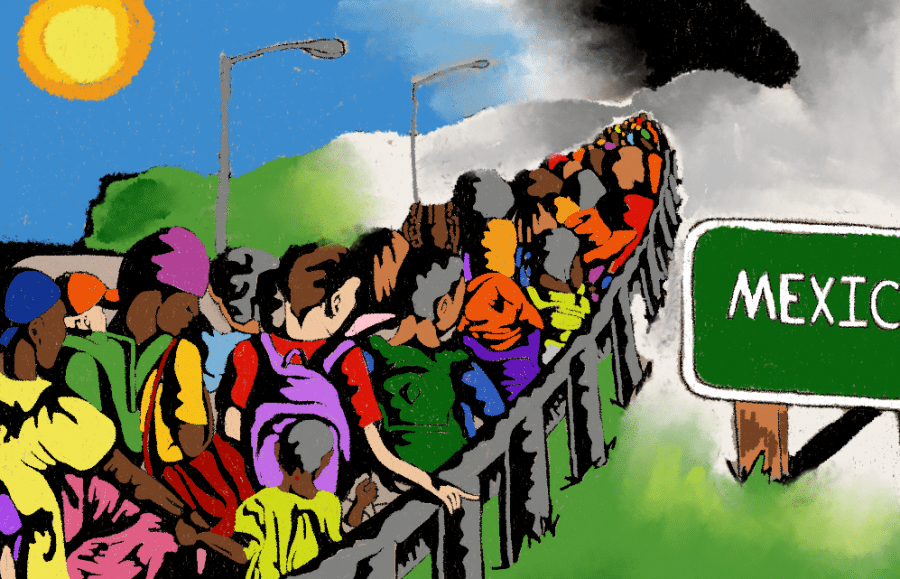
Deportations on Trial: Mexican Americans During the Great Depression
Teaching activity. by ursula wolfe-rocca. in this lesson, students analyze who is to blame for the illegal, mass deportations of mexican americans and immigrants during the great depression..
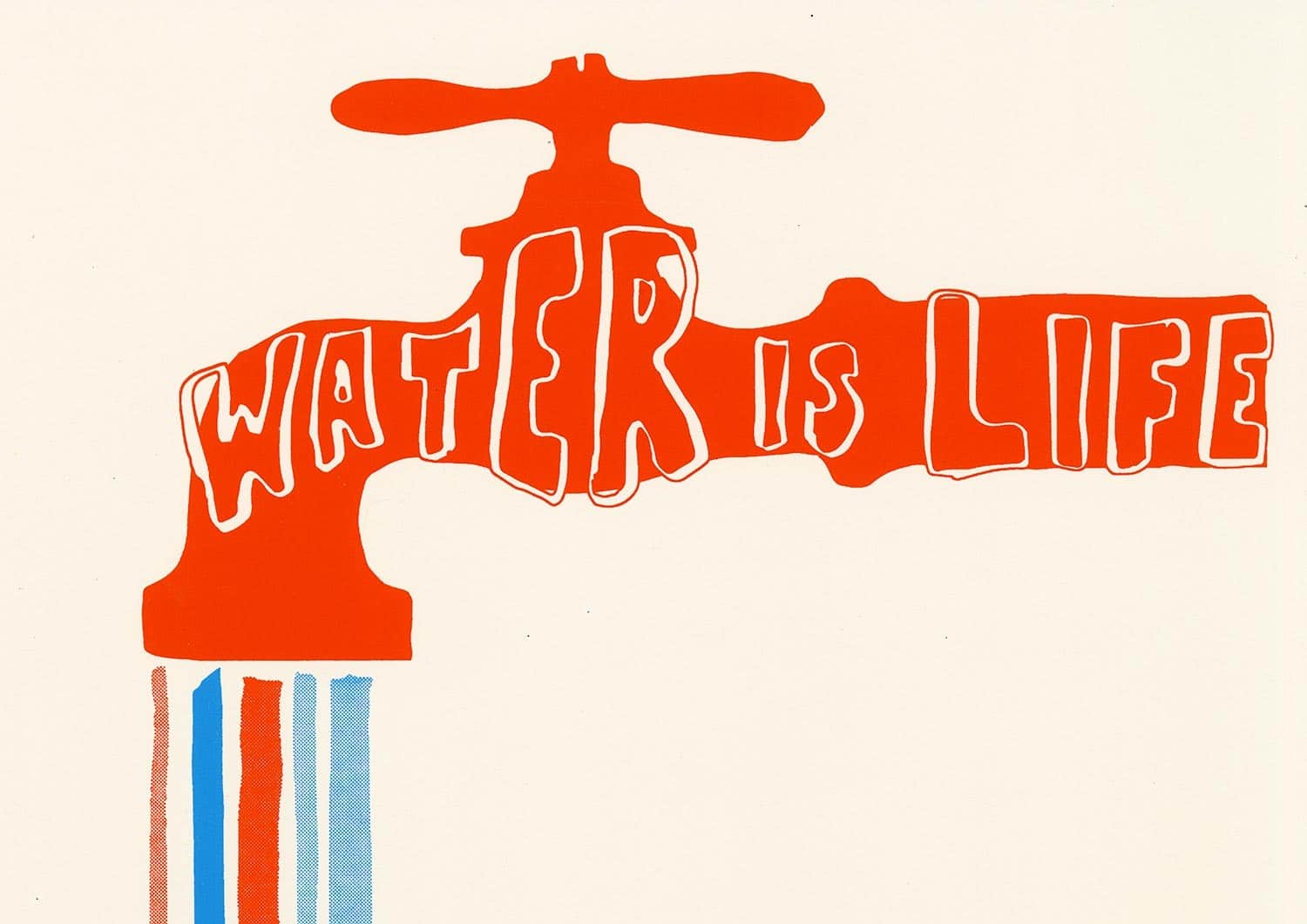
Water and Environmental Racism
Teaching activity. by matt reed and ursula wolfe-rocca. rethinking schools. a mixer activity, inspired by the 2016 democracy now documentary thirsty for democracy , introduces students to the struggle of residents to access safe water for drinking, cooking, and bathing in the majority-black cities of flint, michigan; jackson, mississippi; and newark, new jersey..
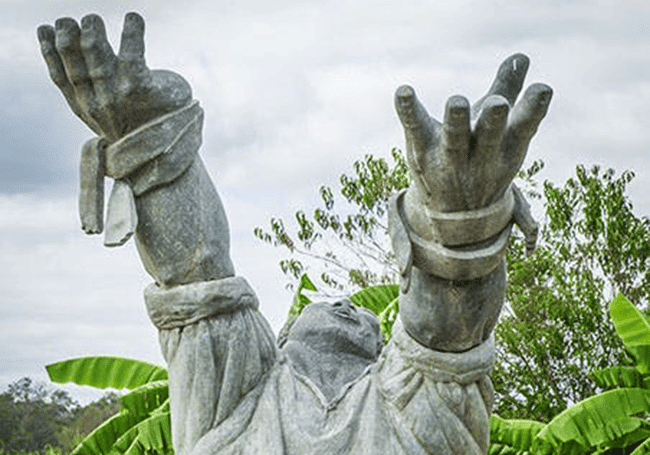
How We Remember: The Struggle Over Slavery in Public Spaces
Teaching activity. by bill bigelow, jesse hagopian, cierra kaler-jones, ana rosado, and ursula wolfe-rocca. students read about sites of memory in how the word is passed and imagine how to commemorate what occurred there. they then compare that to how the respective site is currently commemorated and described by docents..
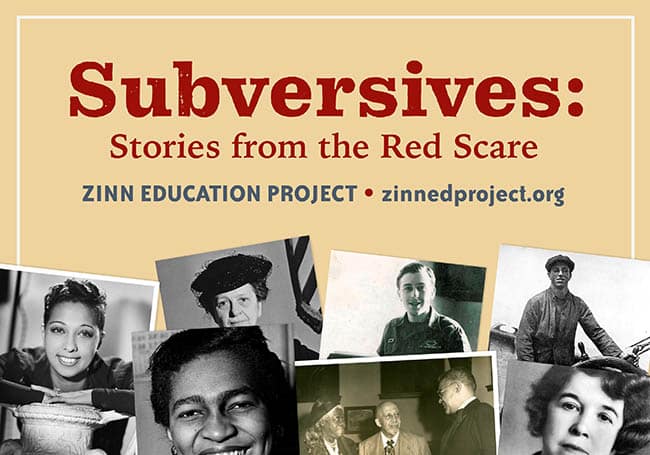
Subversives: Stories from the Red Scare
Teaching activity. by ursula wolfe-rocca. in this mixer lesson, students meet 27 different targets of government harassment and repression to analyze why disparate individuals might have become targets of the same campaign, determining what kind of threat they posed in the view of the u.s. government..
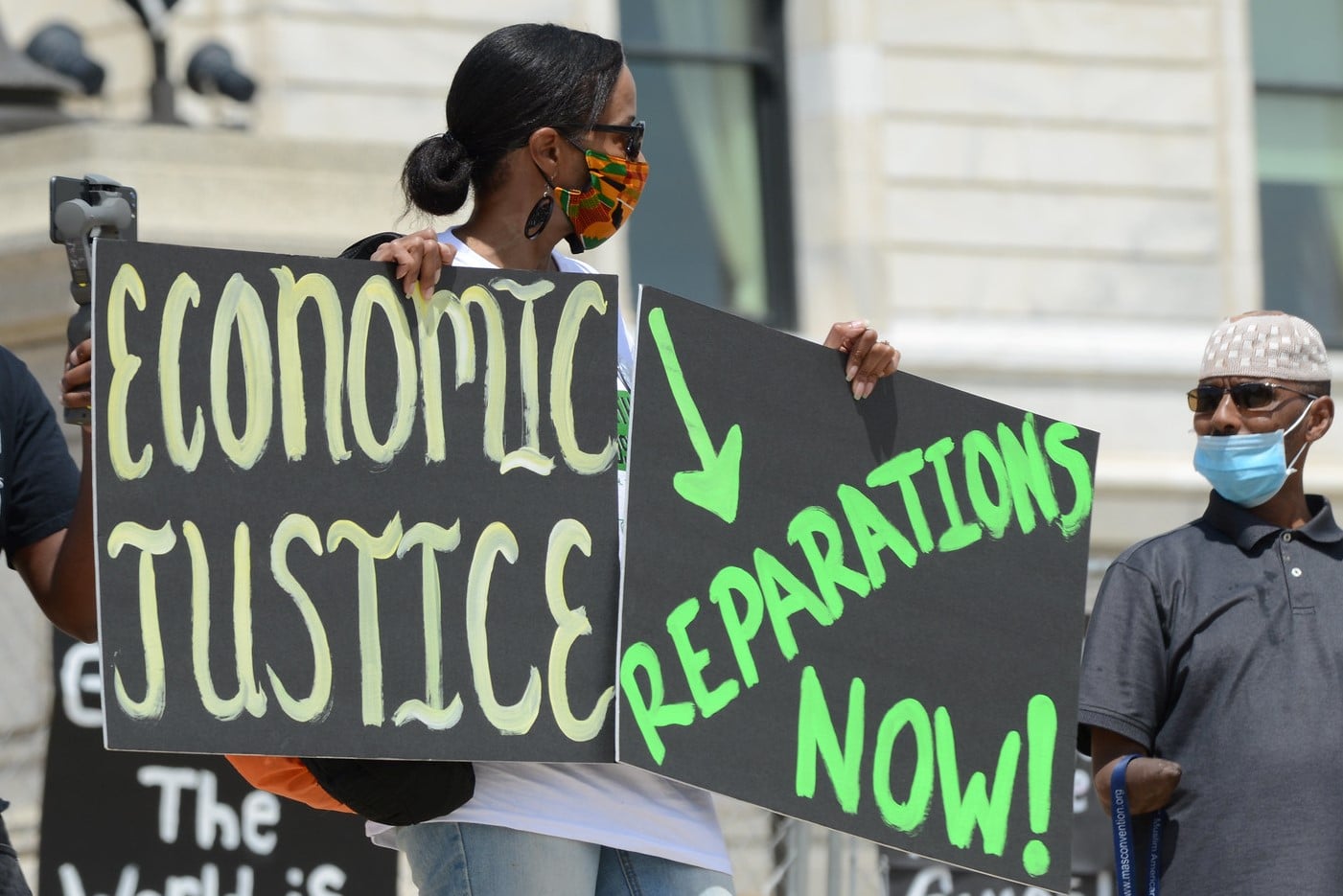
Repair: Students Design a Reparations Bill
Teaching activity. by ursula wolfe-rocca. in this activity, students take on the role of activist-experts to improve upon a congressional bill for reparations for black people. they talk back to congress’ flimsy legislation and design a more robust alternative..
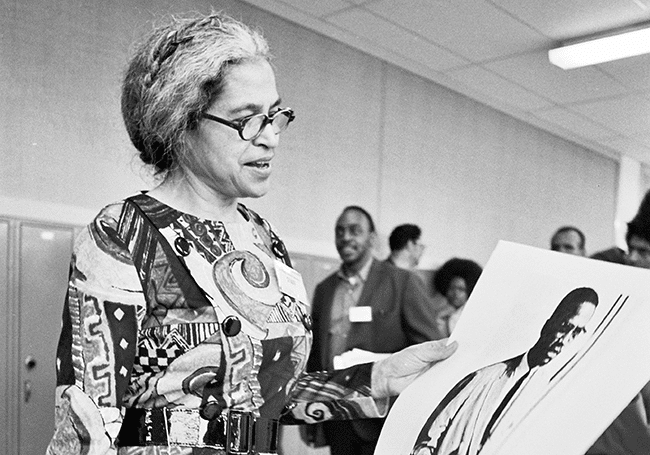
The Rebellious Lives of Mrs. Rosa Parks
Teaching activity. by bill bigelow. in this mixer lesson, students learn about rosa parks’ many decades of activism by taking on roles from various times in her life. in this way, students learn about her radicalism before, during, and long after the montgomery bus boycott..
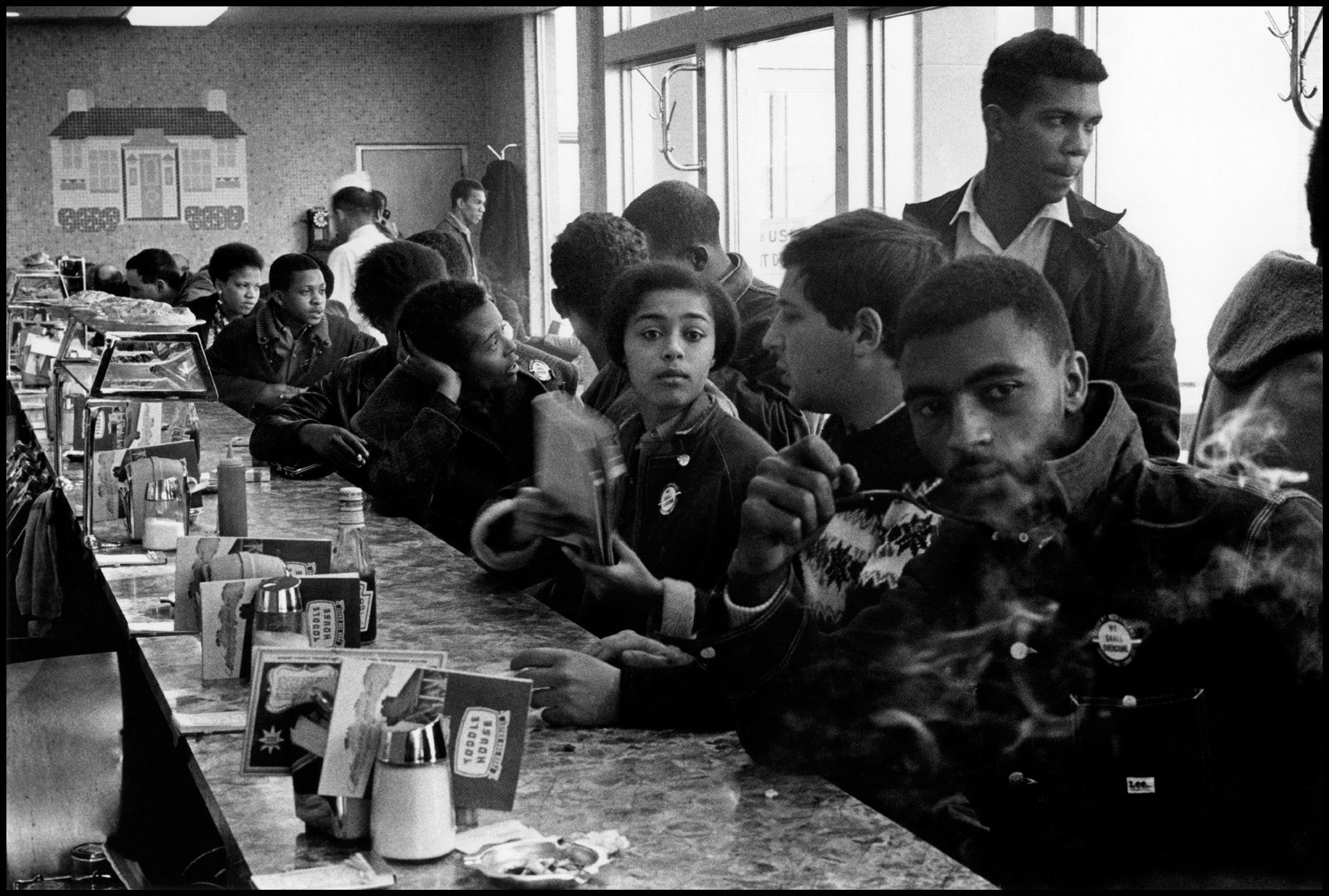
Teaching SNCC: The Organization at the Heart of the Civil Rights Revolution
Teaching activity. by adam sanchez. rethinking schools. 24 pages. a series of role plays that explore the history and evolution of the student nonviolent coordinating committee, including freedom rides and voter registration..
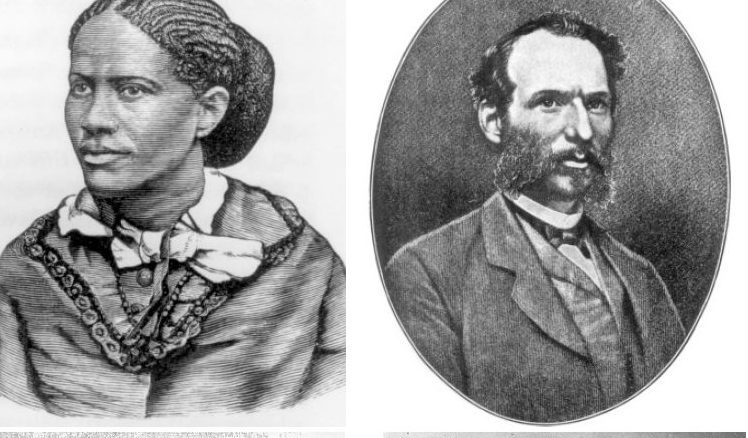
When the Impossible Suddenly Became Possible: A Reconstruction Mixer
Teaching activity. by adam sanchez and nqobile mthethwa. 25 pages. a mixer role play explores the connections between different social movements during reconstruction..
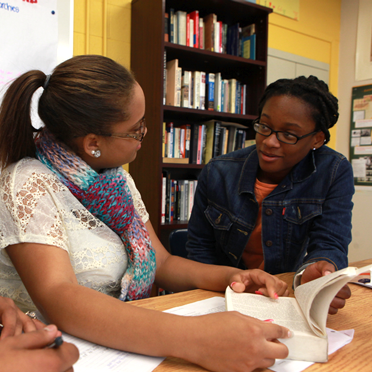
The Zinn Education Project promotes and supports the teaching of people’s history in middle and high school classrooms across the country. Based on the lens of history highlighted in Howard Zinn ’s best-selling book A People’s History of the United States , the website offers free, downloadable lessons and articles organized by theme , time period , and reading level.
Testimonials
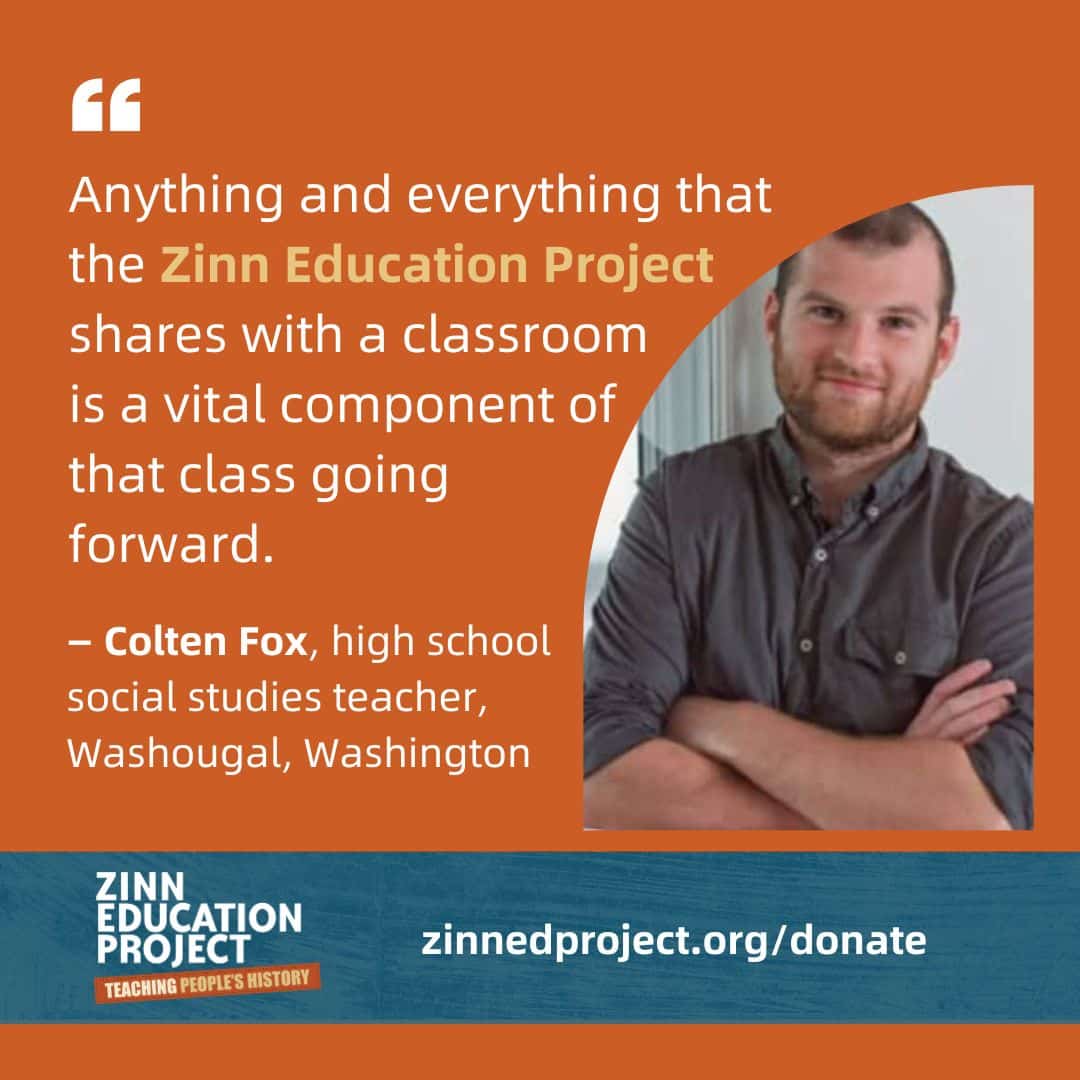
Sign up for updates and to access all teaching materials.
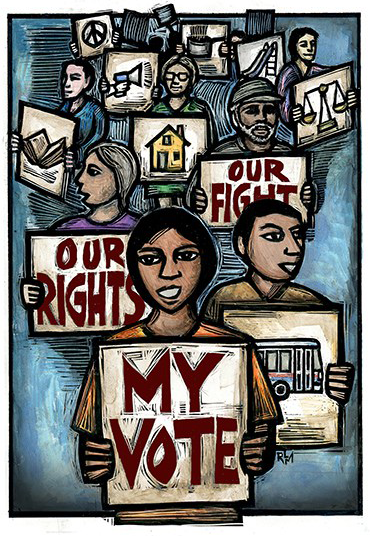
What Our Students Should Know About the Struggle for the Ballot — but Won’t Learn from Their Textbooks
By Ursula Wolfe-Rocca From voter ID laws to voter-roll purges, gerrymandering to poll closures to the deadly in-person voting conditions during a pandemic, the right to vote is under attack and the stakes are high. It is critical that students learn about the fight for voting rights, past and present.
Nov. 1, 1890: Mississippi Constitution...
Teaching about palestine-israel and the unfolding genoc..., teach truth day of action 2024 event highlights..., why teach people's history.

I can UNDERSTAND pessimism, but I don’t BELIEVE in it. It’s not simply a matter of faith, but of historical EVIDENCE. Not overwhelming evidence, just enough to give HOPE, because for hope we don’t need certainty, only POSSIBILITY.
—howard zinn.
- Topical and themed
- Early years
- Special needs
- Schools directory
- Resources Jobs Schools directory News Search
Thought-provoking historical projects
Australia and new zealand, international schools, tes resources team.
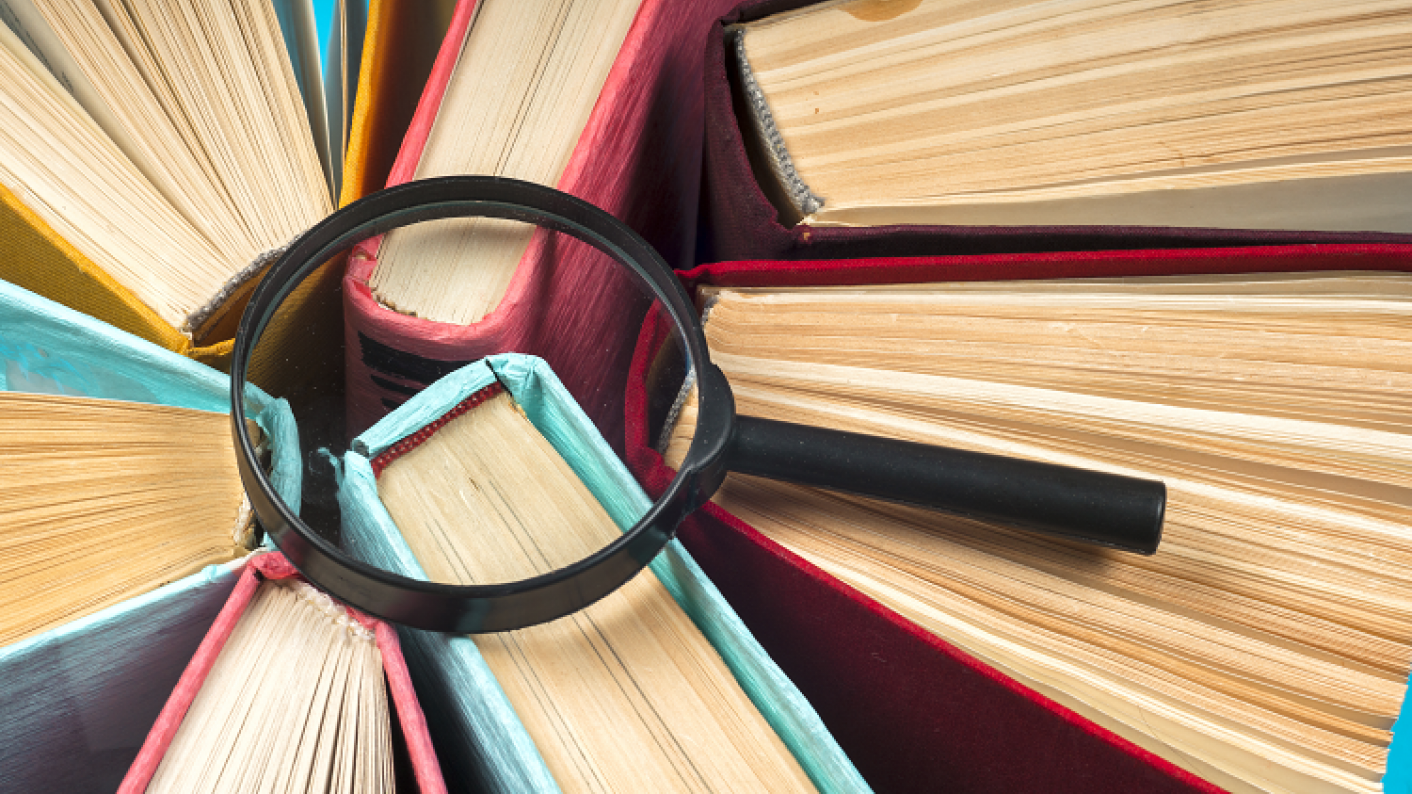
Inspire inquisitive minds to investigate a variety of historical periods with these captivating project ideas
With the end of term almost in sight, projects are a great way to keep your classes engaged while acquiring new knowledge and developing important skills. Whether they are used to introduce unfamiliar historical periods, explore one in more detail or discover local history, this collection of imaginative project ideas has the power to get students of all ages and abilities thinking more deeply.
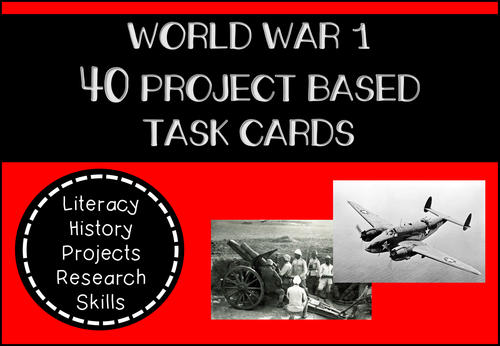
World War I Research and Project Based Task Cards
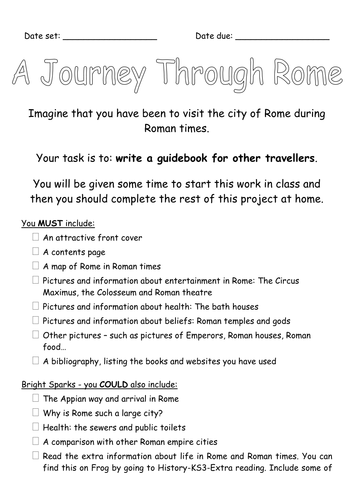
History homework projects - Years 7 to 9

Industrial Cities: Research Project.

WW2: Veterans Research Project

9. Greatest Events of the 20th Century Project

Henry VIII - Full Homework Project
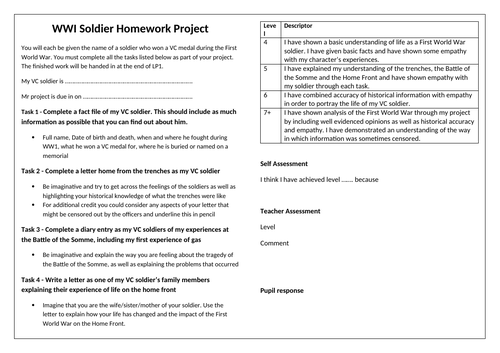
WWI Soldier Homework Project
Local history resources.

Discover the Dissolution Local History Project
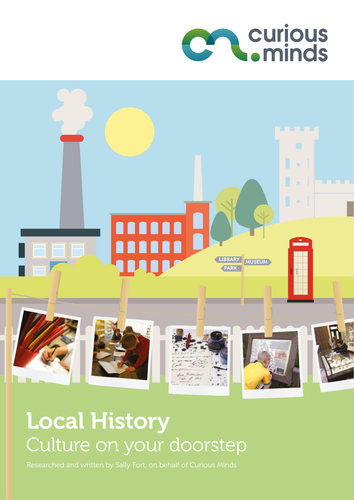
Local History: Culture on Your Doorstep
History Curriculum to Power Amazing Classrooms
Our curricula are created by teachers and scholars. We offer complete social studies courses aligned to state standards, all totally free. Come explore our teaching materials, planning resources, professional-development offerings, and helpful online teacher community.
- Teachers, register now
- Students, join class now
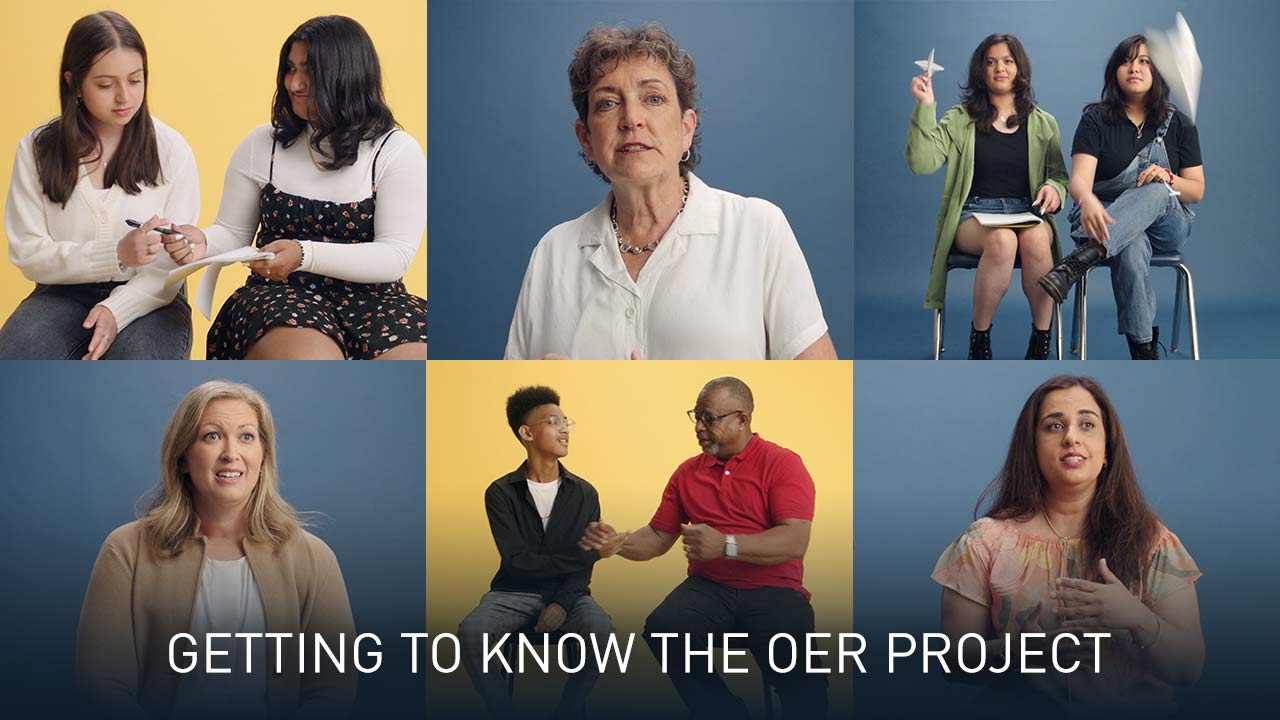
Cookie Policy
Our website uses cookies to understand content and feature usage to drive site improvements over time. To learn more, review our Terms of Use and Privacy Policy .
Spotlight on Classroom Resources
OER Project materials provide a view of the larger world to your students, preparing them for college, career and beyond.

Big History Project
A course that asks big questions about our Universe, our planet, life, and humanity.
- Covers Big Bang to the present
- Adapts for grades 6–10
- More than 50 lesson plans across 10 units
- 62 videos, 117 texts, 40 activities

World History Project
Three courses to meet your needs: Origins to Present, 1200 to Present, and 1750 to Present.
- Aligned to the vast majority of world-history state standards
- Designed for high school
- More than 30 lessons
- More than 60 videos, 180 texts, 180 activities

Climate Project
A new take on climate education, developing critical thinkers and impatient optimists.
- 21 lessons across 5 units
- Flexible materials for easy modification
- Designed for grades 6-12
- 13 videos, 15 texts, 29 activities
What Makes Our Social Studies Courses Different?
Standards-aligned: Our courses are grounded in the latest learning insights and are aligned to state standards.
Focus on interdisciplinary skills: Content engages students while helping them build reading, writing, and critical-thinking skills.
Flexible: Access from our site, from Clever, through an LMS, or by sharing to Google Classroom.
Built in professional development and online teacher community: Learning options include self-paced and real-time opportunities to learn and connect.
Materials & Resources to Teach OER Project Your Way
There are many ways to teach our courses and we believe that your way is the best way. We provide the curricula, materials, support, profession development, and tools you need to do what you do best.
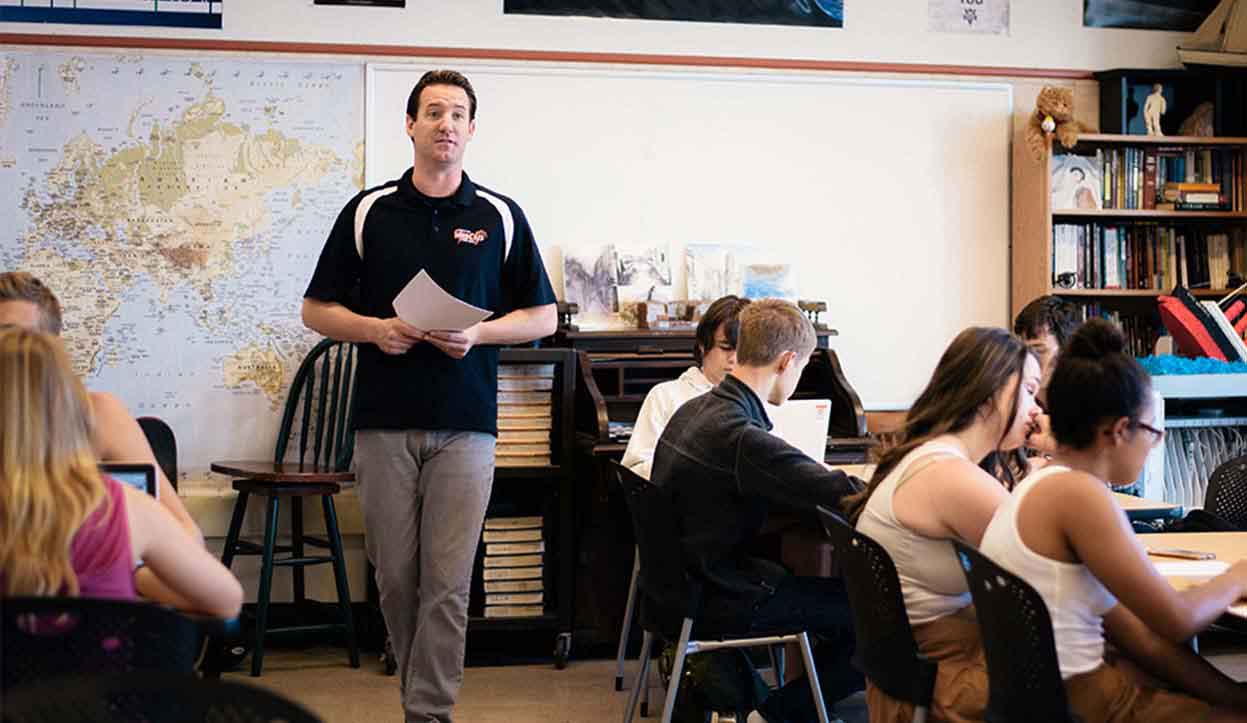
Testimonials from Our Teaching Community
I struggled my first two years of teaching because I couldn’t find the “right thing” to teach my students. I came across the OER Project and it was life changing. The course materials add a dynamic component to ensuring my students understand the fundamental elements of history, such as CCOT [continuity and change over time], writing skills, critical thinking, and more!
OER Project helped me to reimagine how and why I teach history without having to reinvent too many wheels on my own. The thoughtfully designed structure and rich variety of resources offer much-needed inspiration and energy … Importantly, thanks to the blend of audiovisual, graphic, hands-on activities, and leveled texts, history is accessible to every learner.
I've taught World History Project and Big History Project for the last six years and have found that my students have become more engaged in their classroom due to the multiple resources that are made available through the OER Project. It has made my students more confident and successful and is a tool that I will continue to use.
Get OER Project insights and updates delivered to your inbox.

IMAGES
VIDEO
COMMENTS
With the right history project idea, you can gain valuable research skills while diving into a subject you’re passionate about. From Native American culture to the Civil Rights Movement and more, read on for historical project suggestions …
History projects are educational assignments where students explore and investigate events, people, or themes from the past. These projects typically require students to conduct research, gather information, and present …
Our creative history activities, lessons, and projects are designed to make information digestible and memorable. Use a single history project as supplemental material or combine several to …
Free lessons and resources for teaching people’s history in K-12 classrooms. For use with books by Howard Zinn and others on multicultural, women’s, and labor history.
Inspire inquisitive minds to investigate a variety of historical periods with these captivating project ideas. With the end of term almost in sight, projects are a great way to keep your classes engaged while acquiring new …
OER Project’s free, online social studies and world history curricula are aligned to state standards and develop key historical thinking skills.
History teaching that is based on multiperspectivity, historical thinking and on the values of the Council of Europe can enhance students’ critical thinking skills, democratic competences and empathy – all of which are …